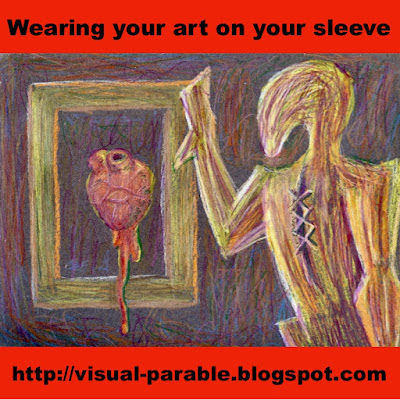It is no secret that the world tends to define love as an emotion. Even the science of psychology backs up this belief. If you have been in the church for a while you should be well aware that the Bible does not define it that way at all, but rather as an action. (1st Corinthians 13, 1st John 3:14-18) Yet, even if we intellectually know this, we still struggle to live it out this way, and often fall back on human nature's tendency to apply it as a feeling. So instead of just rehashing a Biblical truth that we should all know by now, maybe we should take a closer look at why we don't live this truth as well as we should.
For example, speaking as a social media poster, whenever I make a warm and fuzzy post about the love of God people are all over it. Giving it plenty of likes. Clearly, God's unconditional love that we find so favorable is a good example of love as an action. If it were based on his emotion, we would have succumbed to his wrath already. Yet, why don't we follow that example ourselves? God's nature is the standard of holiness after all. It seems that we prefer to just give into emotion blindly, even when it hurts others.
Yet speaking as a blogger, whenever the title of a blog refers to love, it inevitably receives very little traffic. So they are some of my least read blogs. Hence, my vague title today, I didn't want to scare anyone off. Which begs the question, why are so many adverse to an in-depth look at the subject of love as it pertains to our practice of it? After thinking long and hard about this, here are a few possible reasons.
One, we think we know all there is to know about love. I dare say if people honestly believe that they know it all, they likely do see love as an emotion. That love is merely something we experience, not understand. Yet considering that many of the world's most common evils are done in the name of love, I find that approach faulty. The impatience, the unkindness, the rudeness, the criticism, the assault, the abuse, the stalking, are all often rationalized in the name of love. It all reeks of the love of self, not others. I've said this before, but you probably didn't read it. If love were just an emotion, it would be dependent upon maintaining those feelings. Meaning love would be inherently conditional.
Two, we don't want our assumptions about love challenged. We tend to put love on a pedestal. We long for a love that will fulfill this image in our heads. An image that will fulfill all our emotional needs. Our expectations are often highly unrealistic too. This often leads to all the aforementioned evils as an attempt to control the pre-conceived image in a vain attempt to be loved the way we think we deserve. Well, guess what, the person that we are with is as imperfect as we are, and possibly doing the same right back at you. So if you try to control their feelings you will likely get the opposite result. It may be hidden behind an act, but if you think people are truly happy faking it, you are only kidding yourself. Think about it, the people who approach love this way are probably the ones that have hurt you the most. Knowing this, can you really in good conscious do the same to others? Then again, you probably already have.
Three, we know the truth, but don’t want to be convicted by our shortcomings in living up to the true definition. When you get down to it, true love is selfless and sacrificial, two of Christ’s most defining characteristics. Not to mention the hardest to live up to since it requires transparency, vulnerability, and getting involved. Jesus commanded us to love as he did, and this is kind of a big deal if you actually stop and think about what he did for love. A far bigger deal than we really give it credit for. No wonder people shy away from it and try to bypass the subject. So it’s also no wonder why the church is struggling if we are neglecting such a pivotal part of the gospel.
So I challenge you on this holiday to look beyond the warm and fuzzy romantic tropes of Valentine’s Day and dive deep into the reality of true agape love. It’s not for the faint of heart that is for sure.
“This is my commandment, that you love one another as I have loved you. No one has greater love than this, to lay down one’s life for one’s friends. You are my friends if you do what I command you.-John 15:12-14
 |
| True love is the ultimate act of vulnrability |